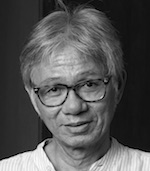

There now seems a general agreement that only around 5,000 have been killed in the 3 years of President Duterte’s war on drugs.
It is the lowest number in a range of estimates running to as high as 27,000. It also represents the only kills the police would take responsibility for; all the others are blamed mostly on vigilantes, although their boldness at this time could only have been inspired by Duterte's declaration of a war that should not stop until all drug suppliers, dealers, runners, and addicts have been eliminated — all 4 million of them by his estimate.
The first yearend report of the Duterte presidency (2017) already counted around 20,000 drug-war deaths, for July 2016 to November 2017, of these the police owned their part in 3,967. No similar report has been issued again, possibly because the first one had provoked too many questions and criticisms. Its online edition, in fact, was killed after a few days. But, with no such easy way to do it with the paper copies, my own has survived.
If the cumulative death count to date is 5,000, that means the killings have slowed to 1,000 in the past year and a half. Anyway, that’s the premise from which any reckoning about the war on drugs might be allowed by the government to proceed, and it appears generally conceded.
But does that mean the government will now allow itself to be investigated?
Replying to a recent call by human rights advocates in the United Nations for precisely such an investigation, the Office of the President simply mouthed its stock line of defense: "an outrageous interference [with] Philippine sovereignty."
The Department of Foreign Affairs, for its part, issued a statement that, for all its cloudy reasoning, was clear in its adamance: "We reject this call as it is being made in bad faith by parties who want to undermine domestic processes and spread disinformation on the basis of one-sided reports coming from questionable sources."
But for how long can the regime keep those hounds away?
The urgings at the UN were sharp and robust, not at all concessionary: 11 special rapporteurs – "an unusually large group of experts," observed The New York Times– issued a joint statement saying they "have recorded a staggering number of unlawful deaths and police killings in the context of the so-called war on drugs, as well as killings of human-rights defenders," and asking the UN Human Rights Council to undertake an investigation into it.
The proposed investigation is separate from a similar but larger case in the International Criminal Court. In it Duterte is being made to answer for "extrajudicial killings" not only as president and for his war on drugs but also as mayor of Davao City and for alleged death squad executions. But Jude Sabio, the lawyer who filed that case, two years to the month now, does not doubt that the UN experts "see the same substantive merit" he raised in it, and is "hopeful and confident" the ICC "will open soon" its own investigation.
"I’d rather the ICC finished its preliminary examination" – going on for more than a year now – "and proceeded to an active investigation," Sabio says. "After all, that investigation could achieve the same objectives the UN experts intend for the Human Rights Council to achieve. The striking difference is that the ICC investigation could lead to trial, conviction, and jail sentence." Still, he says, "a UN investigation could aid and bolster the ICC case."
Vice President Leni Robredo herself is only too logical in her own endorsement of it: "Kung totoo na walang human rights violations dito, bakit sasalungatin natin 'yung imbestigasyon?" (If it's true that there are no human rights violations here, why oppose investigation?)
In other words, seize the chance to prove the investigators wrong. – Rappler.com